Intro: A Vegetarian Turned Hunter
In my early twenties, I was a vegetarian for almost 8-years. Today I have become the person I once despised, a Hunter.
I hunt, forage and grow a notable amount of the food my family eats.
Before I expand on why I hunt, I'd like to take a moment to share a blanket of gratitude to all my mentors and the people of indigenous lineages and world-views who have touched my life and guided me to this point in my journey.
I am thankful to have been exposed to this very different word-view that comes out of a participatory relationship in the web of life.
It is pretty different than the observatory and "western intellectual" view of Nature I was raised in.
I'd also like to acknowledge the thousands of years of poor conduct often perpetuated by people of my ancestral lineage (past and present). A lot of work needs to be done in the spirit of cultural reconciliation.
I pray my actions and choices show reciprocity to these relationships and that my mistakes along the way do not cause unjust harm.
I have broken this post into four parts:
Part 1: Why I Hunt; A Problem & An Unexpected Journey
Part 2: Knowing Wildlife Like We Know Our Friends
Part 3: Reconciling Natures Harshness, Beauty & My Anthropocentric View
Part 4: Culture, Deep Connection & Purpose in Hunting
Part 1: Why I Hunt; A Problem & an Unexpected Journey
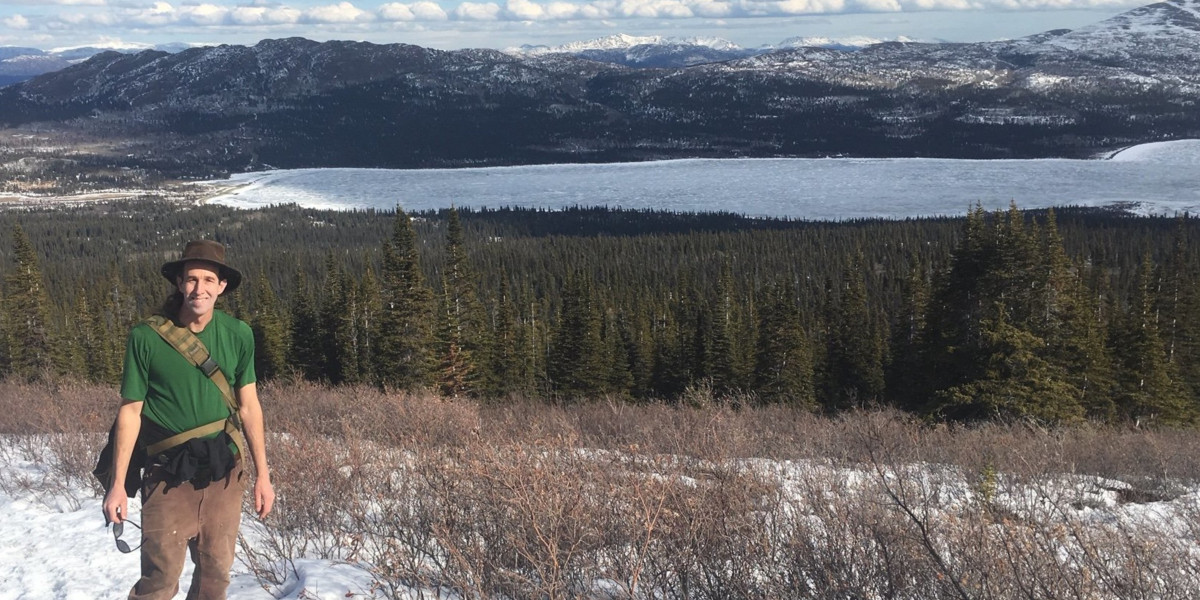
People often ask me why I hunt and question if it is sustainable. So I will share a bit of my Hunter's Journey here to spread understanding of these questions.
I became blatantly aware of three problems in my young adulthood (now over 20 years ago):
- The ecology of our planet and environment was in trouble, and our unsustainable food systems contributed to this. I wanted to do my part.
- Being raised in a city, I was disconnected from the land. I knew little about our earth's ecology, even though I spent ample time camping and enjoying the outdoors. I experienced Nature much like a tourist, artist or someone into the outdoors as a recreational hobby. There is nothing wrong with any of these on their own. Still, for me, it was a much different perspective of Nature. Much different than entering into a conscious subsistence relationship with the web of life and being part of an ancient story and lineage.
- Caring about the environment, spending time outdoors, and having good intentions do not equate to understanding the intricacies of how healthy ecosystems and habitats function. To be a good steward of the land, I needed to understand ecology much more deeply. I needed to feel part of the ecology of my home. This could NOT be learned in a classroom and through western sciences and world-views alone.
Learning to hunt has been one of the most profound experiences of my life.
When I started, it was about wanting to be more sustainable and self-reliant and have a deeper relationship with my food.
I never anticipated how much it would change who I am and my relationship to Nature, culture and my understanding of self.
The old analogy of peeling the layers of the onion fits well here.
As the learning happens and the layers are peeled back comes:
- Moments of profound joy and moments of deep grief
- Complete overwhelm & crystal clear clarity
- New relationships and also moments of loneliness
- Lessons and questions around the intersection of culture, politics, history, human Nature, ecology, biology and more
- A quest to find mentors and MY people
- The learning journey of being a mentor who is still on his own pursuit of learning
- An evolving understanding of what is sustainable, what is reciprocity and what is reconciliation
- An exploration of life, death, harsh realities and intense beauty
In Nature, death is an integral part of the health of an ecosystem.
Trillions (or as large a number as you think) of organisms die and lose their current form daily. Without this exchange of energy and recycling of nutrients, the earth's biosphere would collapse.
Being a vegetarian did not remove me from this natural cycle.
My story and identity around being a vegetarian allowed me to hide from the harsh and beautiful reality of this sacred exchange of energy. Other things die because I live, whether I eat meat or not. And one day, I will die, and other organisms will consume my body and transform it into new life.
I understand that my judgement that taking a life for food was cruel was a very anthropocentric view. One based on my emotions, modern cultural upbringing and a lack of understanding of ecology.
The view also did not understand and honour the relationship Indigenous peoples and other species have had with the web of life for over a hundred thousand years.
I have no problem with vegetarianism, especially to reduce your carbon footprint. Or if it is a choice to not support the cruel and unsustainable practice of factory farms and large-scale "meat production."
I also understand that some people can't bring themselves to take a life for food when they can buy it from a store. And I do recognize that if everyone hunted, it would no longer be sustainable.
This all makes sense to me.
What no longer makes sense to me is the disillusion that by not eating meat, other beings do not die so I can live. And that hunting is inherently cruel and destructive for the planet.
These simply are not true.
Most of us know that many populations of wildlife are rapidly declining. This is often an argument against hunting. But, unfortunately, it is a fair one in many instances.
Now that I better understand ecology, I also know some species' populations are stable, even with them being hunted yearly for generations.
And other species are rapidly increasing in numbers, some with populations much higher than what would have "naturally" existed in particular ecosystems.
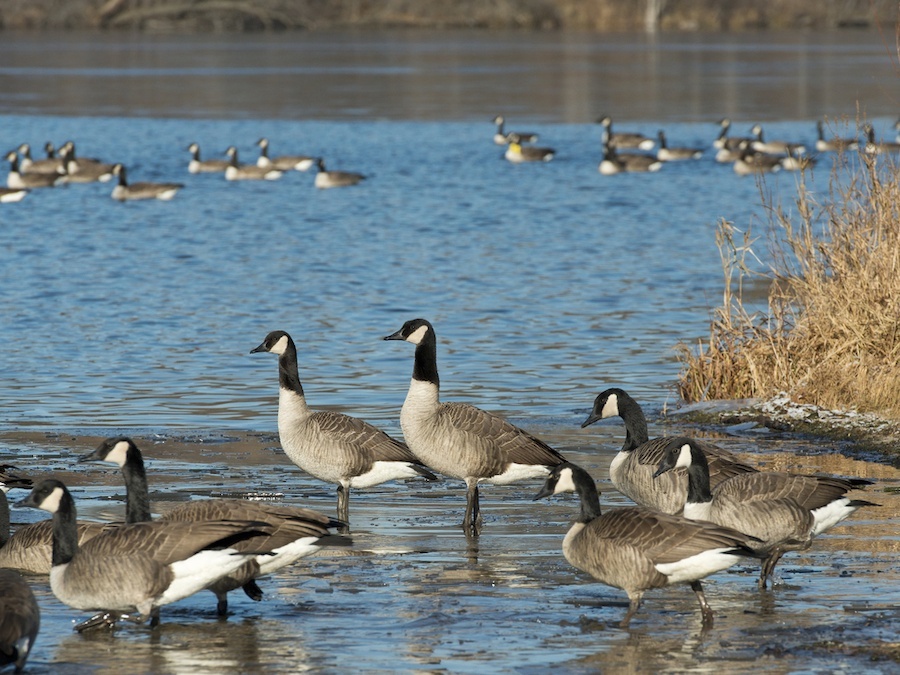
Humans have changed the balance of the landscape; with this, some species go extinct, while others thrive in unsustainable ways, which contributes to the decline in the health of habitats and forests.
Those second two categories (sustained populations and growing high populations) allow the opportunity for some of the most sustainable local food one can eat.
And an opportunity to go on a life-changing journey. One of reconciliation and deep connection with the land, our food and ourselves.
If you think, "if everyone started hunting, these healthy populations would crash too." I agree.
I am not suggesting everyone hunting is sustainable. Instead, I am making a case for bio-regional food strategies based on a deep understanding of ecology and carrying capacity.
And I am making the case that hunting can be a part of a sustainable food system. And a powerful way for people to better understand ecology, themselves and their role in the web of life.
If you want a deeper glimpse into my Hunter's Journey and a better understanding of why I hunt. In that case, you can read the rest of this post on the "Hunt, Forage, Grow, Survive" Website.
Part 2: Knowing Wildlife Like We Know Our Friends
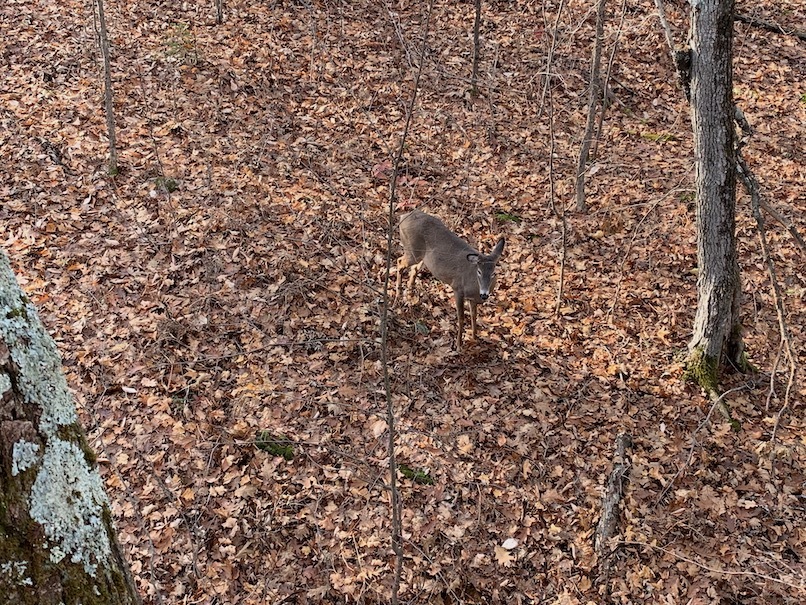
There are so many stories I could share to outline the ways hunting has impacted my life and changed me as a person. I will share a few examples and stories in the coming sections.
But first, if you are feeling a deep calling from with-in to explore this ancient relationship with the land and want to connect and explore the path of the Hunter for yourself
Check out The Hunter's Journey Course & Community.
Save $75 with code "HUNT75" - The 2022 fall cohort is open for registration!
Now on to those stories…
My shift in perspective in becoming a hunter has been influenced by direct participation in the web of life. I no longer feel like a tourist when I am in the woods. Watching a David Attenborough movie about Deer, reading several books and even having a few encounters in the wild is not deep relationship.When I contrast this to how well I know some of my human relations, particularly the ones I have gone through the trials, tribulations and joys of life with, I barely know Deer at all.
These humans I reference have names. Each one has an elaborate story of their life. Collectively, these people's cultures have a story as well.
I can watch movies and read books about other cultures, but do I know and understand those cultures as a result? Certainly not on a deep level.
Unfortunately, I feel "we" often confuse "western intellectual understanding" with the level of knowing that comes out of deep relationships.
I say all this to highlight one of the most significant insights and influences of my journey as a hunter.
To be a skilled and successful hunter, you must enter into a deep relationship with the species you hunt.
It is not just "Deer."
They are individuals.
Every Deer has a family, a habitat it calls home, and is part of a collective story of the Deer Nation.
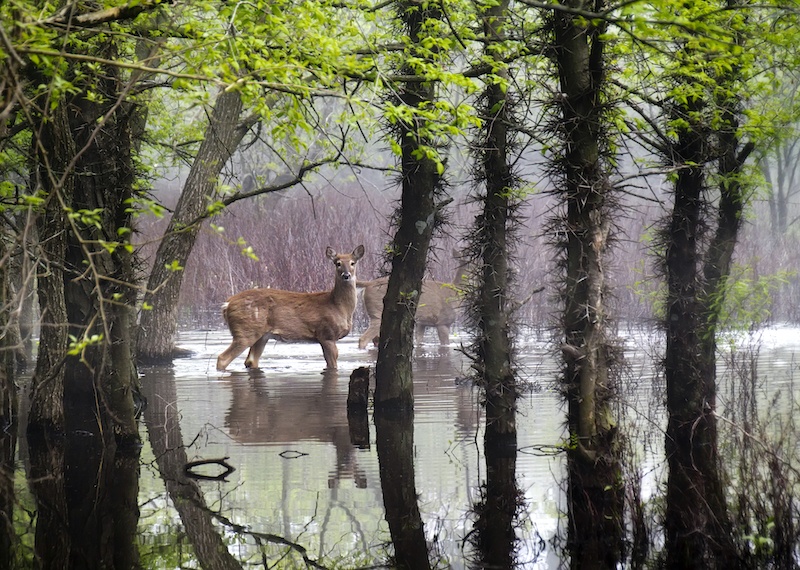
They live outside 365 days a year regardless of the weather. There are no stores to buy food from when the foraging gets slim. There is no emergency room to go to when they get injured.
Predators are looking to eat them. And they are predators too. Did you know the Deer will feed on baby birds in the spring?
They are predominately herbivores, but most herbivores will be opportunistic when they have the chance to eat meat. I would not have known this if I had not observed this many times now with my own eyes.
To watch a deer in a park or farm field is one thing. But, it is a very different level of knowing Deer than going to seek them in the wild. To know not only where they are, but also why they are there under different conditions.
Did you know the Deer move differently across the landscape based on the direction the wind is blowing?
In addition, they move differently on any given day based on the weather, time of day, season, temperature, food availability, where the coyotes and wolves are, and so many other variables.
I used to walk through the woods and occasionally bump into wildlife. However, it was not until I went looking for them that I had to start understanding all the variables listed in that last paragraph.
I now know many of the individual Deer in my region. When I see certain ones, I can say I knew your mom and your grandma.
When I don't see them, I guess where they may be and why they are there based on what is happening in nature that day. Then I use my tracking skills to verify if my guess was right or wrong.
I still have so much to learn about the Deer Nation. However, the quest to know them like relatives has transformed my relations with them as individuals and as a Nation.
It has taught me about their relations with all the other species. And it informs me on how to be in right relations with and a better steward of these shared lands.
Part 3: Reconciling Natures Harshness, Beauty & My Anthropocentric View
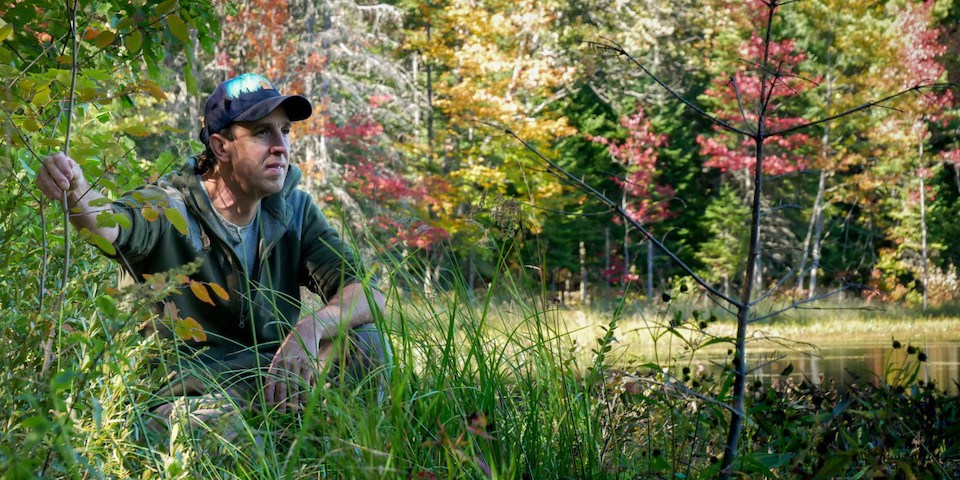
At least from my anthropocentric point of view, Nature can be very harsh and cruel one moment and incredibly profound and beautiful the next.
Seeing the harshness of Nature, and witnessing the relationship of wildlife to it, helps me immensely in reconciling the harshness of our world.
While travelling in the Jungles of Central America, I witnessed two ant colonies go to "war." I remember seeing four giant ants carrying a smaller ant from the opposing colony, stretched out by its legs. They dropped him on the ground, all started to stomp on him, then picked him up and kept going.
The next day I returned to this spot to see thousands of dead ants; only one colony survived.
We used to have bees on our homestead. One of our colonies swarmed and established itself in a new hive out in the forest. We were shocked one day when they came back and attacked the other colony still inside our bee boxes. They dragged the other bees out and killed them all.
I've watched wildlife of different species band together when one predator comes along, then fight amongst each other, sometimes to the death, when the threat of that predator is gone.
I have seen animals starve and freeze to death in their natural habitats. This is why I use the human words "harsh" and "cruel." But those are just that, human words and interpretations of the experience.
Something I have pondered a lot is how do wildlife perceive and experience these things I put judgment on?
What is their relationship to life, death, pain, comfort, fear and joy? Is it anything like mine, or completely different?
I will never fully know, but again I have witnessed very different relationships with the lifes plights, when experienced by our animal kin.
I'll never forget watching a deer take her last breath 30 feet away from me while I was hiding in a tree. Her family knew her time had come; they all sat beside her as she passed.
I came back the next day to check on the carcass, the wolves had fed well that night, and the Ravens were feasting on what was left as I approached.
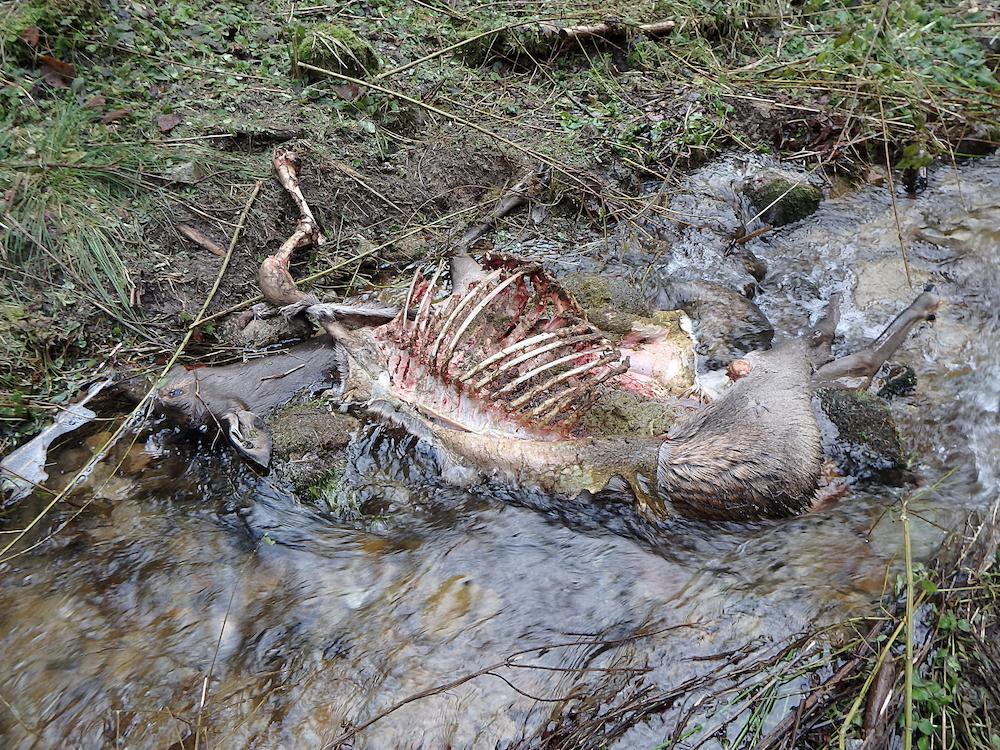
The following year I saw this heard again.
I originally saw them as five, then four. This year they were six, with two new fawns following along. I did not feel any sadness on this day. I felt immese joy and happiness!
Seeing how animals respond to the death and the struggles of living wild has helped me reconcile my own mortality, the death of friends and family and the harshness of the world.
The first time I took a life was intense; I cried in sadness and joy. It was hard, but it also felt ok on a deep level. My family would eat well and use that energy to do good work in the world. And one day, I will give my own body back to the earth.
The metaphors I can find in all of this have impacted me immensely.
Witnessing with my own eyes what an animal's life looks like day in and day out helps me reconcile the human struggle and dilemma we all face.
Witnessing this is so different than the snapshots I used to get in nature movies or brief encounters in the wild.
I used to try to put meaning and explanation to what I saw as harsh and cruel in Nature. I've now come to just sit with the unknown of the mysteries of life. And to accept this sacred exchange of energy for what it is.
It does not take away my sadness but helps me feel more at peace sitting in it. This has been immensely helpful in navigating the human journey and preventing me from being overcome by grief.
To witness cruelty, feel it for a short time like the Deer on that hill, then stand back up and move on with the work I have been put here to do. To stay connected to my purpose and vision in a world that does not often make sense to me.
I have also come to find solace and support in knowing life is a great mystery, and many things will never make sense.
The journey has been profound, humbling and healing.
Part 4: Culture, Deep Connection & Purpose in Hunting
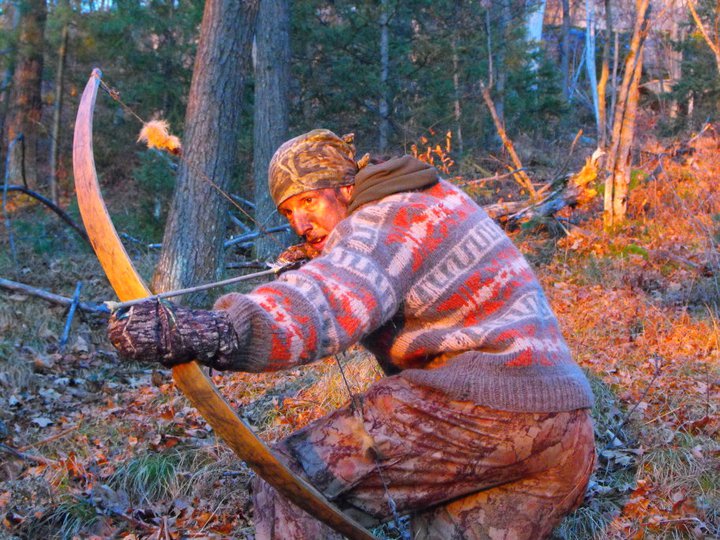
I'll finish with a story of purpose, connection and culture.
At times, my belief in humans and a higher purpose can feel challenged. I have moments where I struggle to keep going when I believe in so little of the trajectory we are on as a species. My own life feels like a contradiction as I try to balance my values with the realities of living in the culture and infrastructure I was born into.
Every hunting season, I have many moments of profound clarity about my purpose.
I look forward to and cherish this bi-annual reset and remembering.
Of course, I have other versions of this remembering and connection to purpose throughout the year. Still, hunting season is a potent one in my annual cycle.
The web of life is so complex yet so simple simultaneously.
Being a predator while accepting my fate as possible prey is not a game or a hobby. I have killed and almost been killed or wounded on multiple occasions.
I have been charged by a black bear, almost stomped on by a massive deer, been a meter away from an aggressive coy wolf, been lost in the wet and dark night, and so much more.
These experiences push me out of the luxury and comfort I am afforded when returning to my modern home. And out of the luxury in thinking and perceiving the world from a place of comfort and privilege.
That value in this has been life-changing in my quest for purpose, deep connection and reconciliation.
My wife's stepfather, Robert Oling, passed away several years ago. He was one of my first influences in transitioning from a vegetarian to a hunter.
I used to think of hunting as being about trophies and dominion over Nature. How could anyone kill these beautiful creatures?
Although Robert may have seemed crude and rough around the edges, if you got to know him, you would learn he was a deep person. A person who had been through a lot in life, and hunting for him was spiritual. He cared deeply for the animals he pursued. He also helped carry on an ancient tradition in his wife Susan's (my wife's Mom or my Mom #2) family lineage.
Susan was of mixed French and Algonquin Annishnabek lineage. Her ancestors on her French side were some of the earlier settlers on Turtle Island. On her Algonquin side, her Ancestors were some of the first peoples of these lands.
Both traditions come with cultural food traditions incorporating wild game meat into dishes such as Tortiere and Sapout.
Bob would bring home wild game that would be shared in feasts with the rest of the family. When he passed, the last of the family hunters went with him.
Oh wait, but what about me?
I am not French or Algonquin. My family are much more recent immigrants to this land. Yet I now have taken on a small piece of the role in keeping these ancient family traditions and recipes alive. I bring home meat and share it with my community and family.
Although I come from a recent Settler family, I am now interwoven in a much older story of these lands. I accept this role humbly and feel a deep responsibility to do it in right relation to the species and habitats I hunt in and the other people and cultures it is intertwined with.
I learn as I go and don't pretend to have it all figured out.
In a world of quick dopamine hits on social media, performing jobs to pay bills when they often do not serve the betterment of humanity and the planet, what more meaningful purpose is there to feed your family?
To help carry on some of the wisdom and healing wrapped in ancient traditions that bind us consciously to the web of life and each other.
I hunt the animals whose populations are abundant, and in doing so, I am a part of the ecological balance maintained by the ancient predator-prey relationship.
I allow my understanding of ecology and firsthand knowledge of the local wildlife populations to tell me what should not be hunted in any given year.
It is for all these reasons I have mentioned and so much more that I choose to hunt.
This path is not for everyone; it would not be sustainable if it was (at least not how ecosystems and human centres are currently managed).
But some of us have a deep calling toward this ancient pathway. So whether you feel the calling or not, I hope this story helps you understand hunting better.
Every Hunter has their own unique story, their own particular why. This is why we call our course and community "The Hunter's Journey, " not Hunting 101.
Suppose you share similar values and are looking for mentors and a community to explore your own Hunter's Journey. In that case, I invite you to check out The Hunter's Journey.
